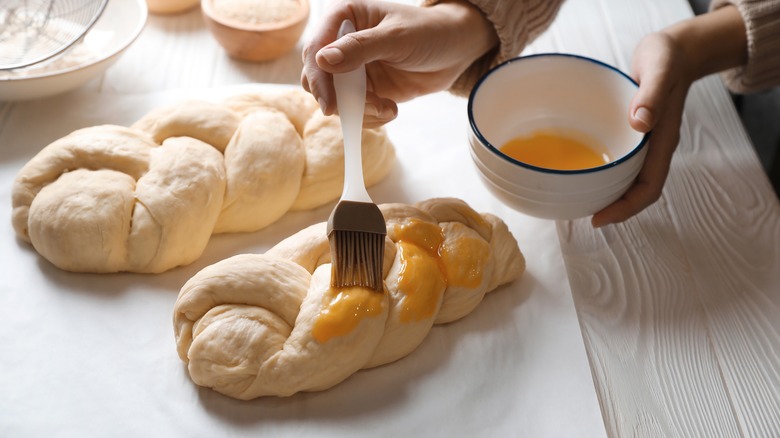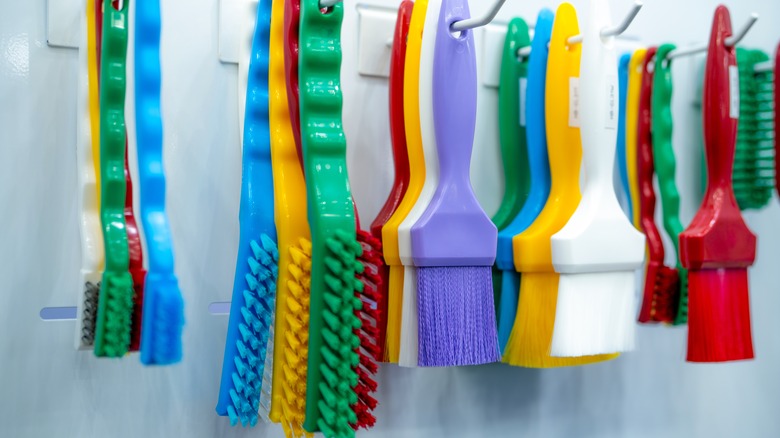The Food Safety Tip To Remember Before Baking With An Egg Wash
When you want to create a gorgeous shine on baked goods or rest assured that various parts of your pastry remain stuck together, egg washes are just the thing. However, using raw egg in recipes can potentially lead to food safety issues when it comes to pastry brushes, which are the go-to tool for applying it. Accordingly, you must be diligent about cleaning your brush after dunking it in a raw egg mixture.
It's a great technique to keep in your cooking arsenal (just consider how the egg wash hack can elevate frozen dinner rolls), but remember that raw eggs can carry some nasty germs. According to FoodSafety.gov, Salmonella can be found on the interior and exterior of eggs, and these bacteria are associated with unpleasant symptoms like stomach cramping and fever. Proper cooking eliminates bacteria, but pastry brushes containing raw egg can also harbor germs. With thorough cleaning, you can remove egg residue from brushes and significantly decrease your risk of foodborne illness.
Best practices for cleaning a pastry brush
There's a quick and simple technique you can use to clean lightly soiled pastry brushes. Apply dish soap to your hand and rub the dampened bristles of the brush into it, then rinse the soap from the brush using hot water. While effective for routine cleaning, you'll also need a more thorough method in case your brush has stuck-on residue. This might be the case if you use honey as an egg wash alternative, as honey can cause quite a sticky mess.
To clean tough substances from the brush, mix warm water and dish soap in a cup or bowl, then rinse the brush under hot water. Next, place the brush into the water and jostle it a bit to loosen any clinging food debris. Rinse the brush again and use dish soap to clean the rest of the handle. If you're concerned about foul odors, fill a bowl with salt and allow the clean bristles to rest in it overnight.
Qualities to look for when buying a pastry brush
A good pastry brush must be made from certain materials, particularly when it comes to the bristles. Keep in mind that these bristles can be constructed from silicone or natural materials, and each option carries unique benefits (and drawbacks). One major upside of silicone brushes is that they're heat-safe, which means they can be easily cleaned in the dishwasher. However, silicone brushes may be too harsh for dough, as they can cause breakage or ruin the smooth texture of baked goods. Accordingly, these brushes should be reserved for basting or adding a layer of fat to the surface of pans and baking sheets.
Conversely, natural brushes are ideal for adding egg washes to baked goods but are not suitable for high-heat applications due to the risk of burning. In terms of qualities to look for in pastry brushes, boar hair brushes are ideal, as they can soak up egg wash and other liquids. They also offer the flexibility necessary to apply liquids to dough without negatively affecting the texture. You will need to hand wash boar-hair pastry brushes, but the added effort is more than worth it when you consider just how lovely your baked goods will look and taste.


